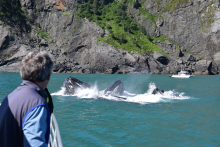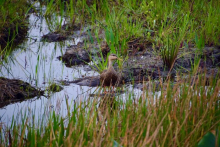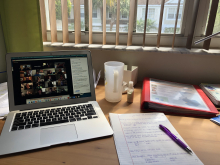Update
Expedition Team Update: Unfortunately, due to the pandemic and space restrictions in Antarctica, teacher Tammy Orilio was unable to accompany the team in 2021. This researcher will not be going to Antarctica in 2022.
What Are They Doing?
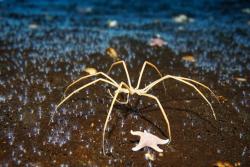
This project will investigate the effect of temperature on the metabolism, growth rate, developmental rate, and developmental energetics of embryos and larvae of Antarctic marine ectotherms. The project will also measure annual variation in temperature and oxygen at different sites in McMurdo Sound, and compare embryonic and larval metabolism in winter and summer to determine the extent to which these life stages can acclimate to seasonal shifts. This research will provide insight into the ability of polar marine animals and ecosystems to withstand warming polar ocean conditions.
Where Are They?
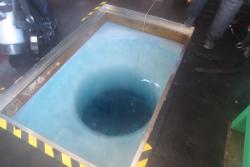
Latest Journals

Dr. Moran studies the physiological ecology and evolutionary ecology of marine invertebrates, with a particular focus on early life history stages – embryos and larvae. One major area of emphasis is the effects of temperature on the energy dynamics of growth and development, and in recent years she has studied polar gigantism in both sea slugs and sea spiders. A second area of emphasis is the effects of temperature on growth, development, and success in many invertebrates including barnacles, sea urchins, worms, and snails; current work in Hawaii also looks at the effects of warm-water events and bleaching on the reproductive success of corals. She is an associate professor at the University of Hawaiʽi at Mānoa. (http://www.moranlab.org)

